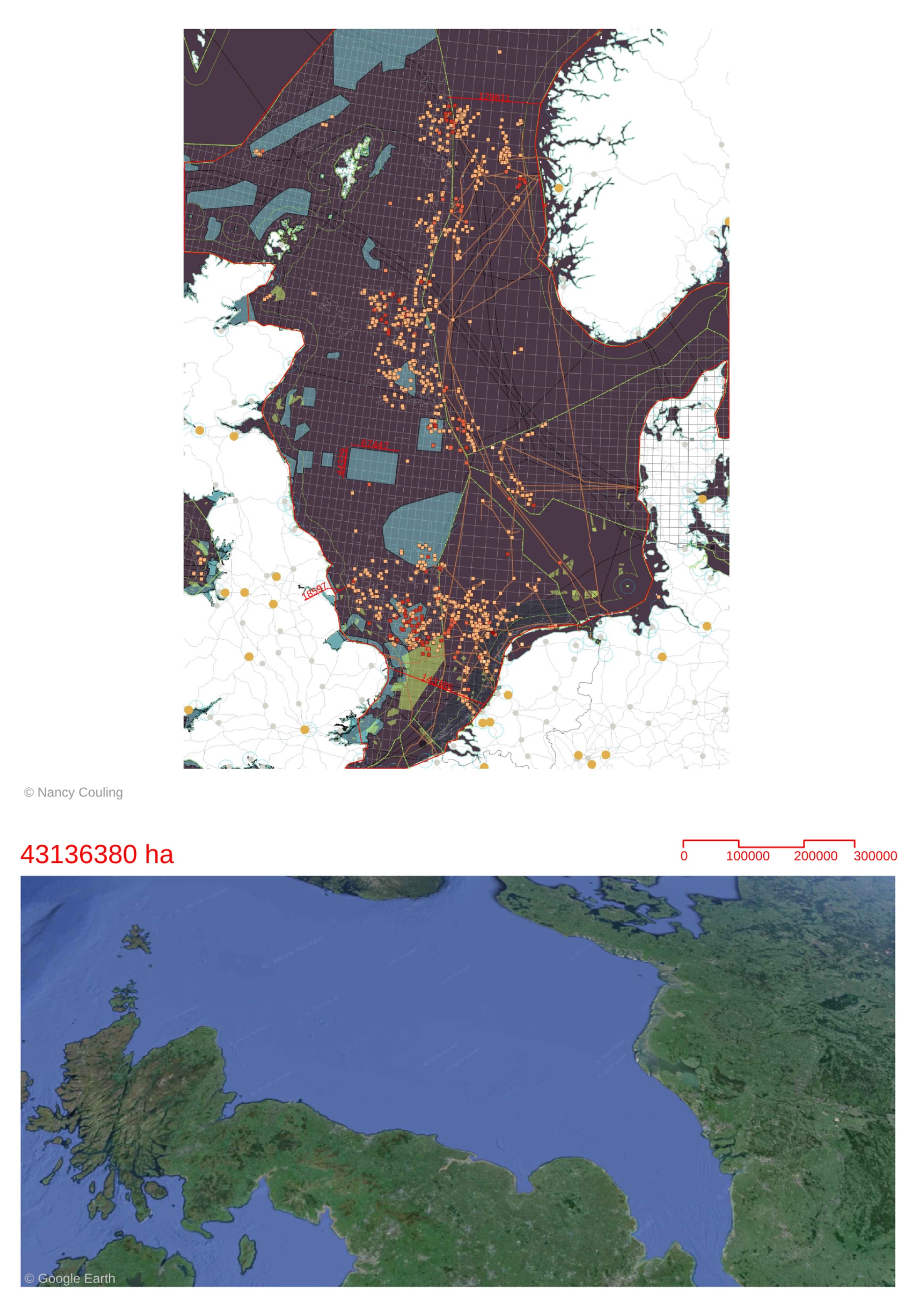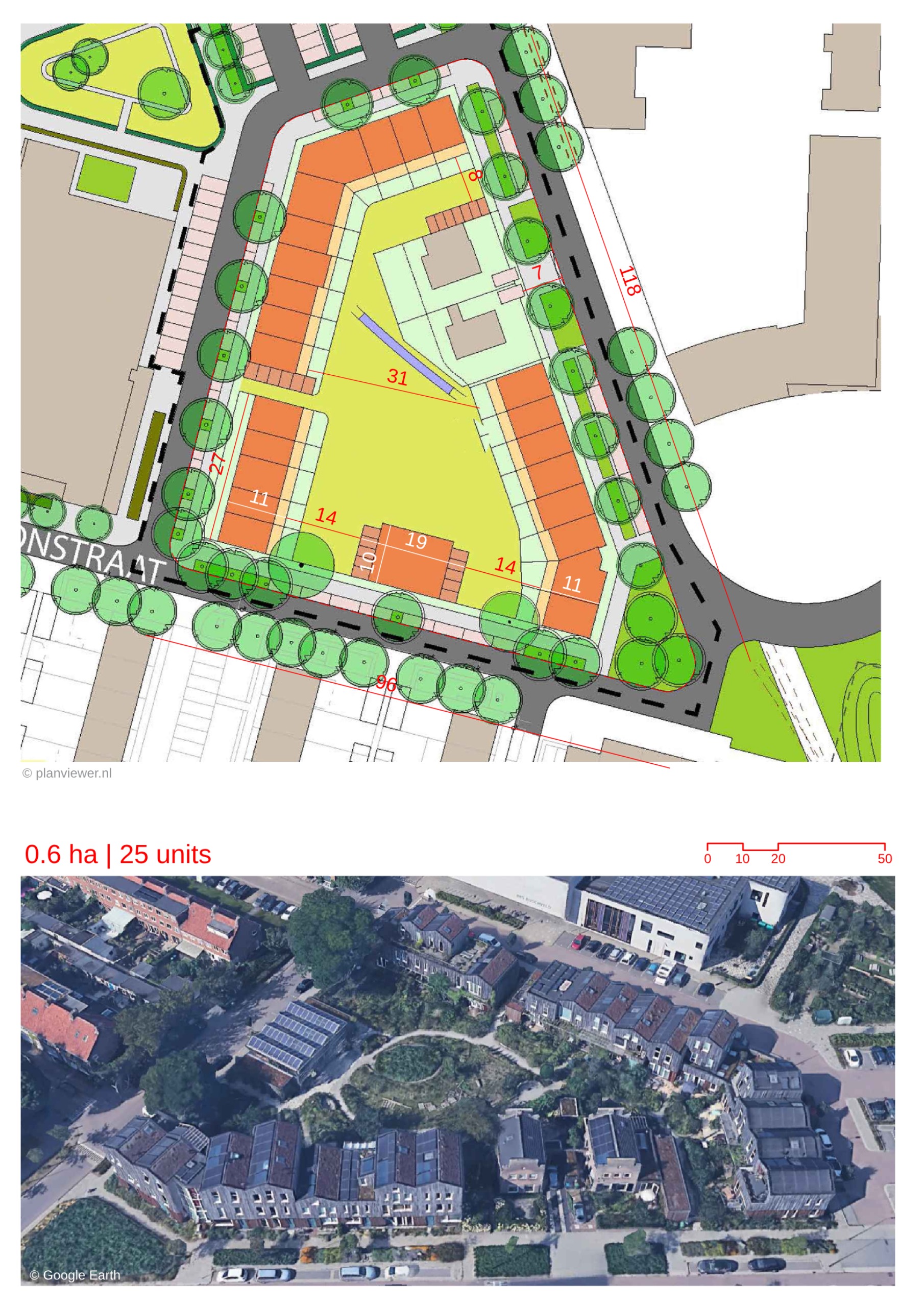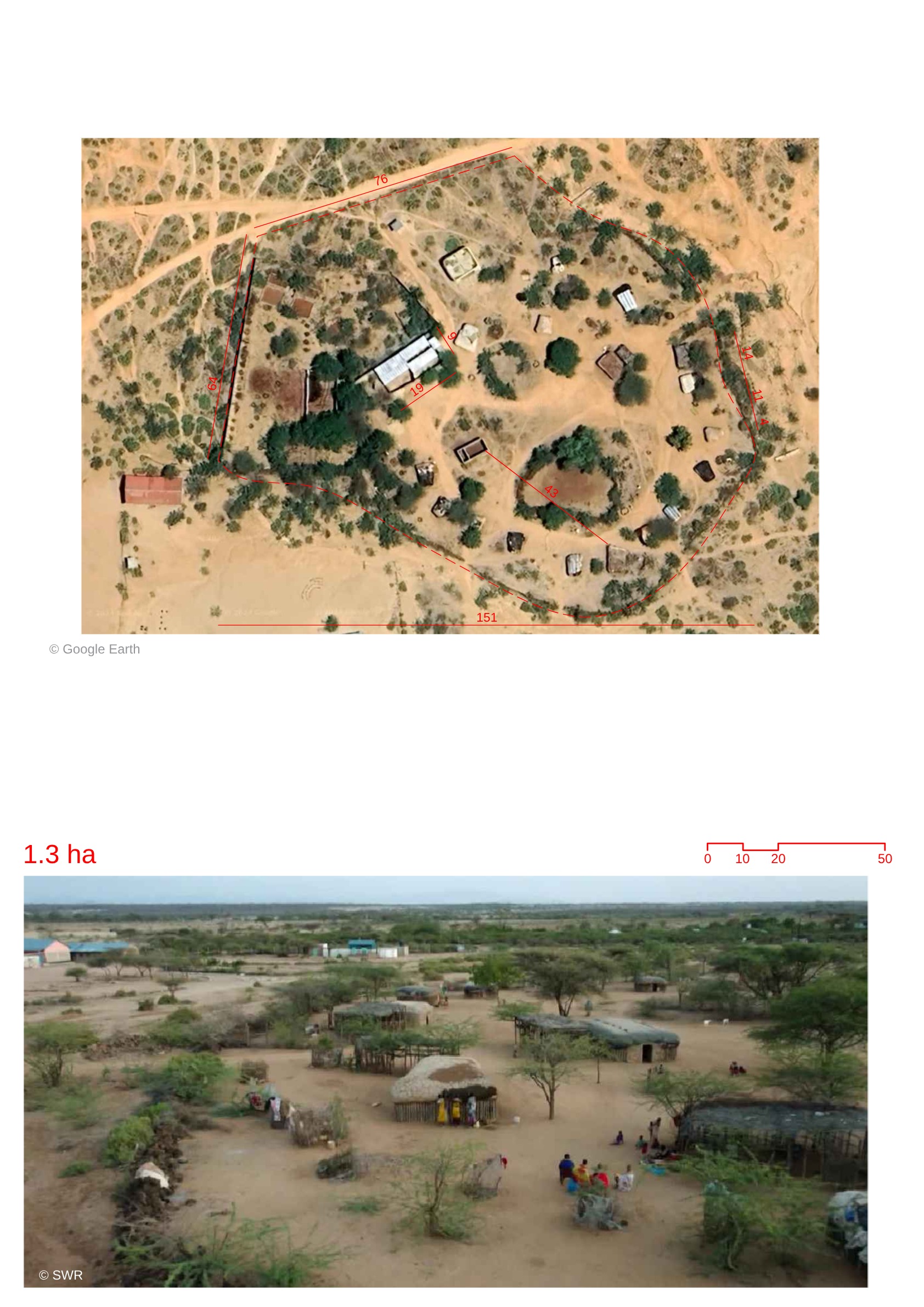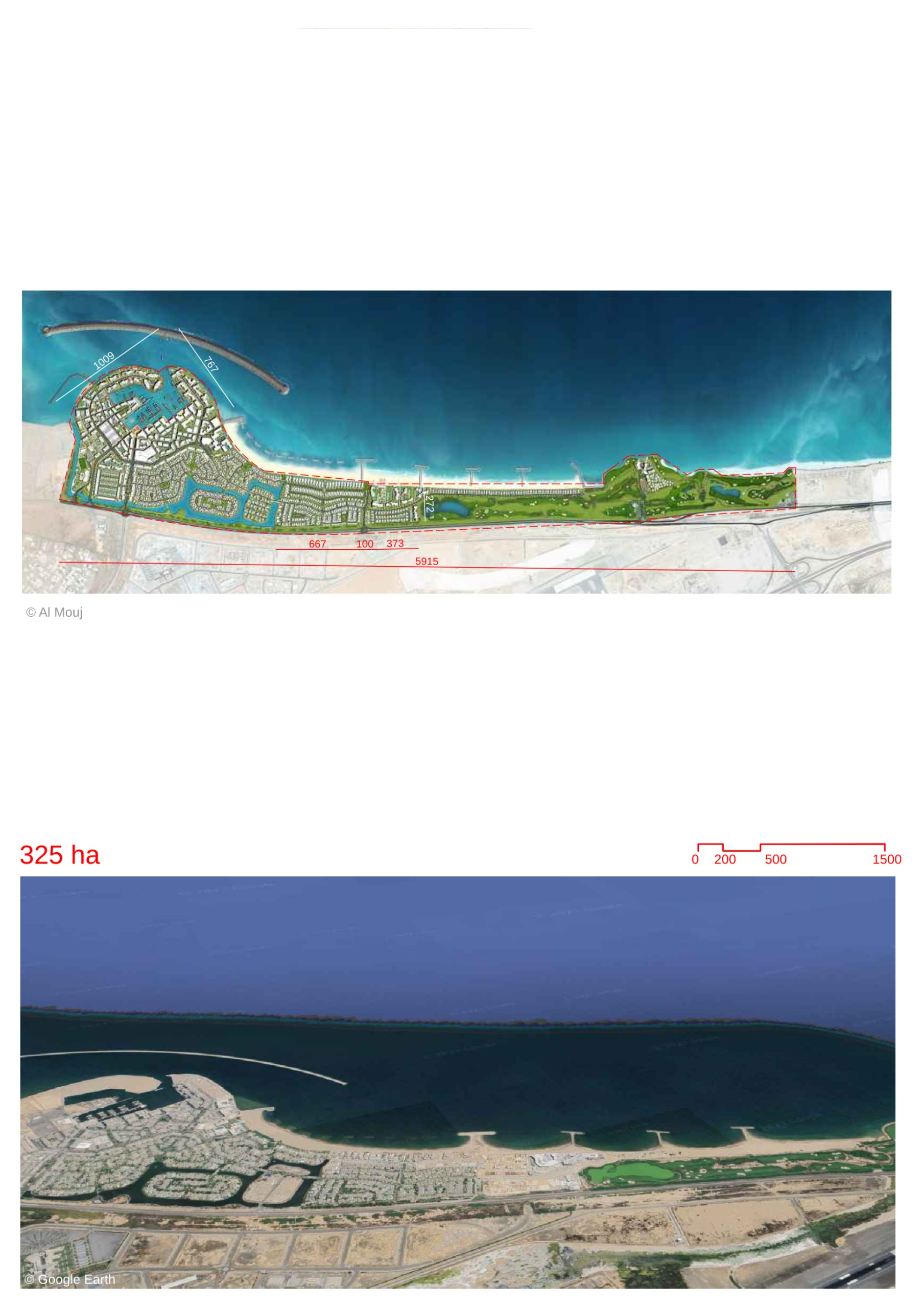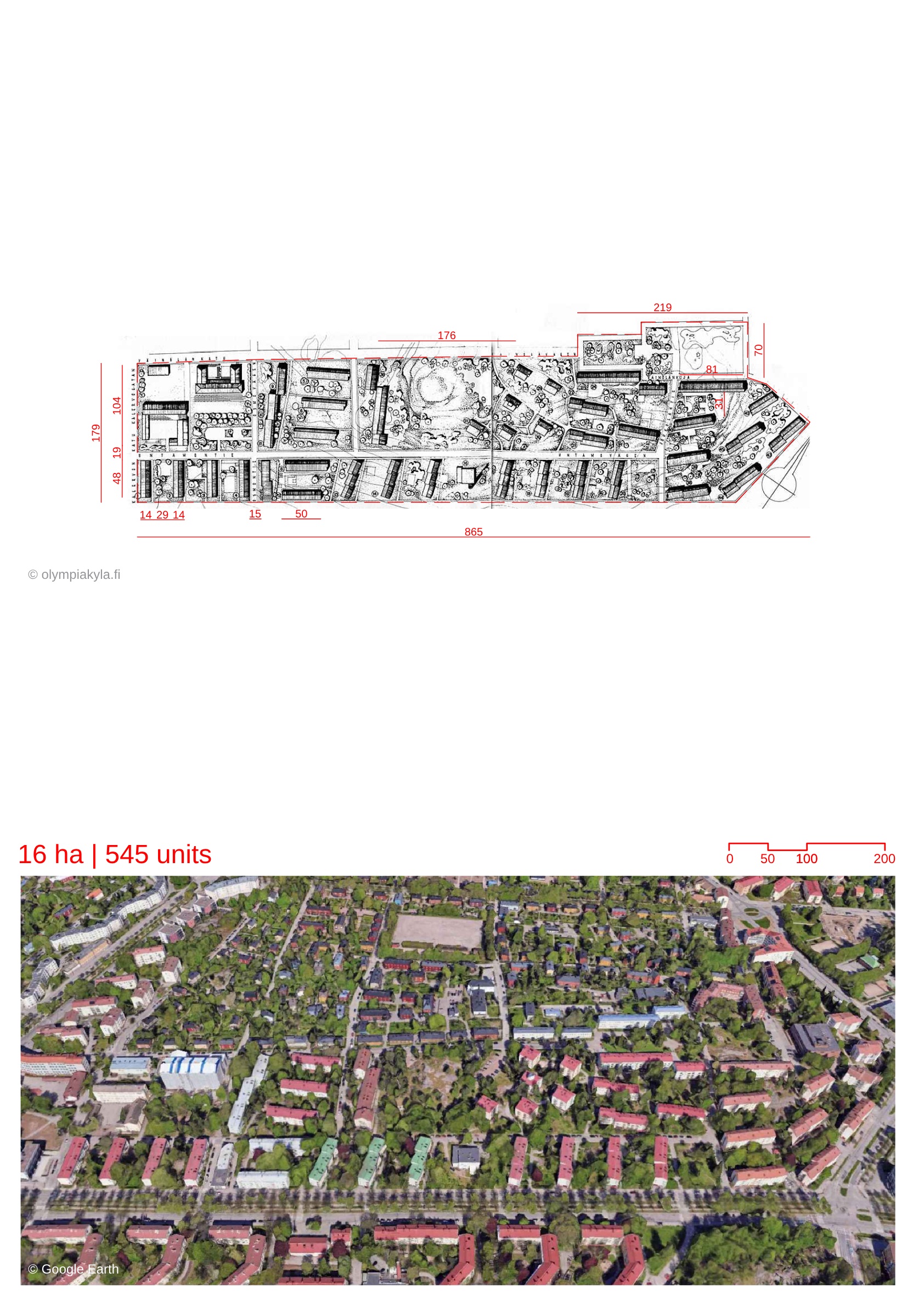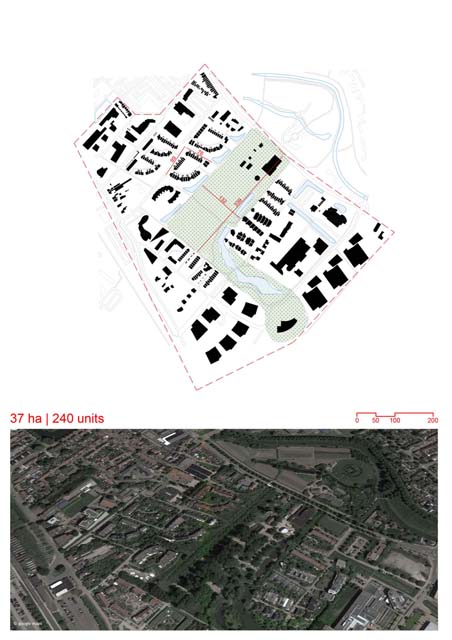Olympic Village Munich
By
BEHNISCH UND PARTNER
In
Munich,
Germany
Save this project to one or more collections.
No collection found
Are you sure?
This will unsave the project your collection.
Compare
Compare this project with others
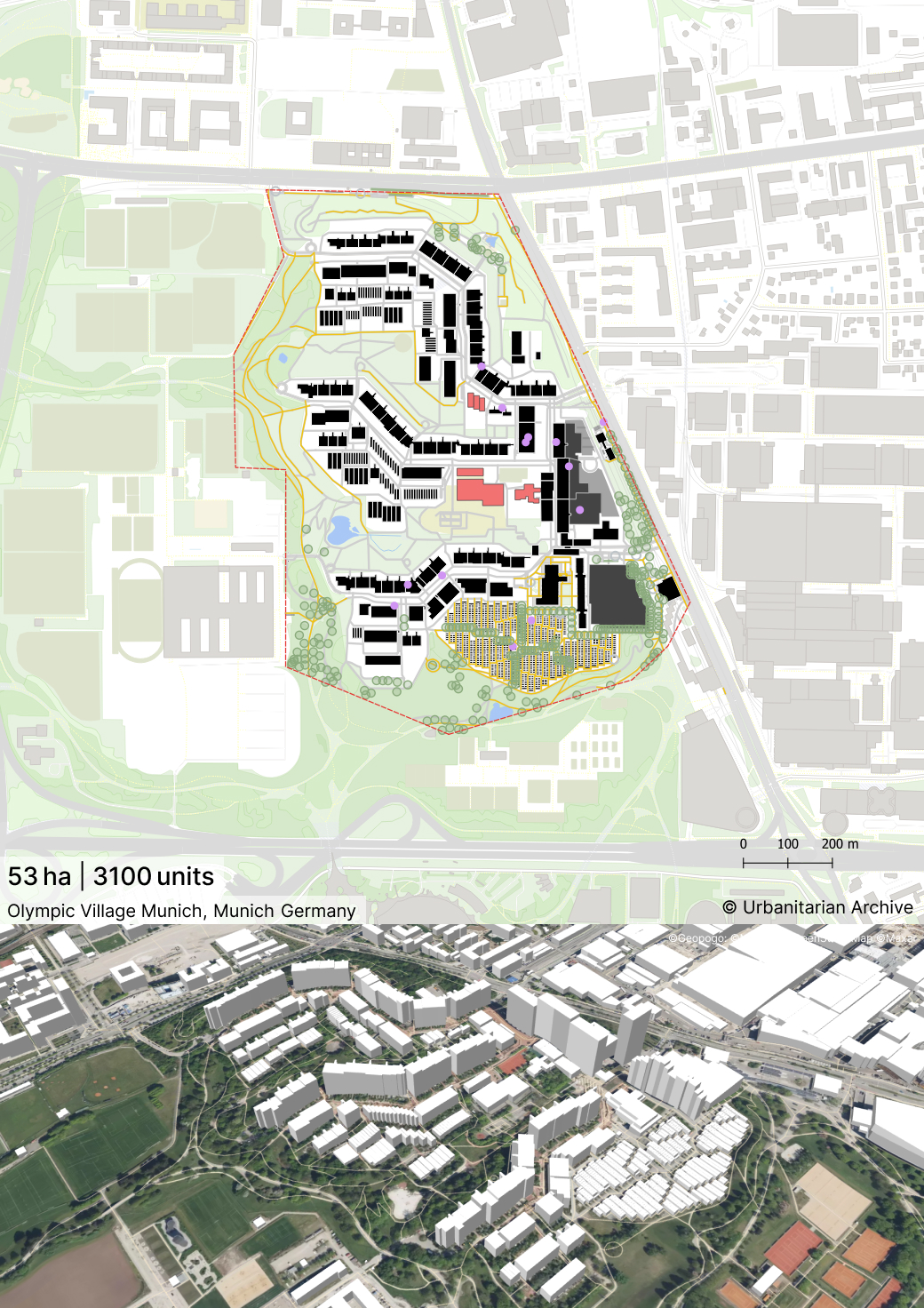
Details
Views:
1188
Tags
Data Info
Author
BEHNISCH UND PARTNER
City
Munich
Country
Germany
Year
1972
Program
Sports Village
Technical Info
Site area
538045 sqm
Gfa
0
sqm
Density
0 far
Population density
6000
inh/ha
Home Units:
3100
Jobs
0
Streetsroad:
0
%
Buildup:
0
%
NonBuild-up:
0 %
Residential
0 %
Business
0
%
Commercial
0
%
Civic
0
%
Description
- It is a residential district part of the larger Olympic Park. It was originally designed as housing for athletes attending the 1972 Olympic Games held in Munich.
- The district is entirely car-free with ample green spaces, making it family-friendly. The vehicular roads are all underground.
- One of the main goals of the design was to develop a legacy-based plan, ensuring the district could be used effectively for local housing once the Olympic Games were completed.
- It is centrally located, close to the city center of Munich, and is well connected with public transit making it possible for residents to not own a car.
- There are several housing typologies with varying forms such as square cottages and staggered mid-rise buidings. 3 rows of mid-rise buildings extend like “fingers”, between them lie the low-rise bungalows and cottages.
- Currently most of the units are inhabited by local families. The female athlete cottages are now developed as a student housing district. It is one of the few places where the painting of walls with graffiti is allowed, showcasing the youthful expression of its residents. -
- A network of “media lines” or colourful pipes can be seen throughout. They act as a wayfinding system through their colour code and as a structure for mounting street fixtures like lighting. They were designed by Austrian architect Hans Hollein.
- There is a merging of landscape and architecture, as the landscape organically merges with the housing rows.
- The project was influenced by the idea of new urbanity in the 1970’s which called for high density neighbourhoods with green spaces. Transitioning away from the era of the car-dominated city.
- It was constructed on a former brownfield site.
Location map
Explore more Masterplans

